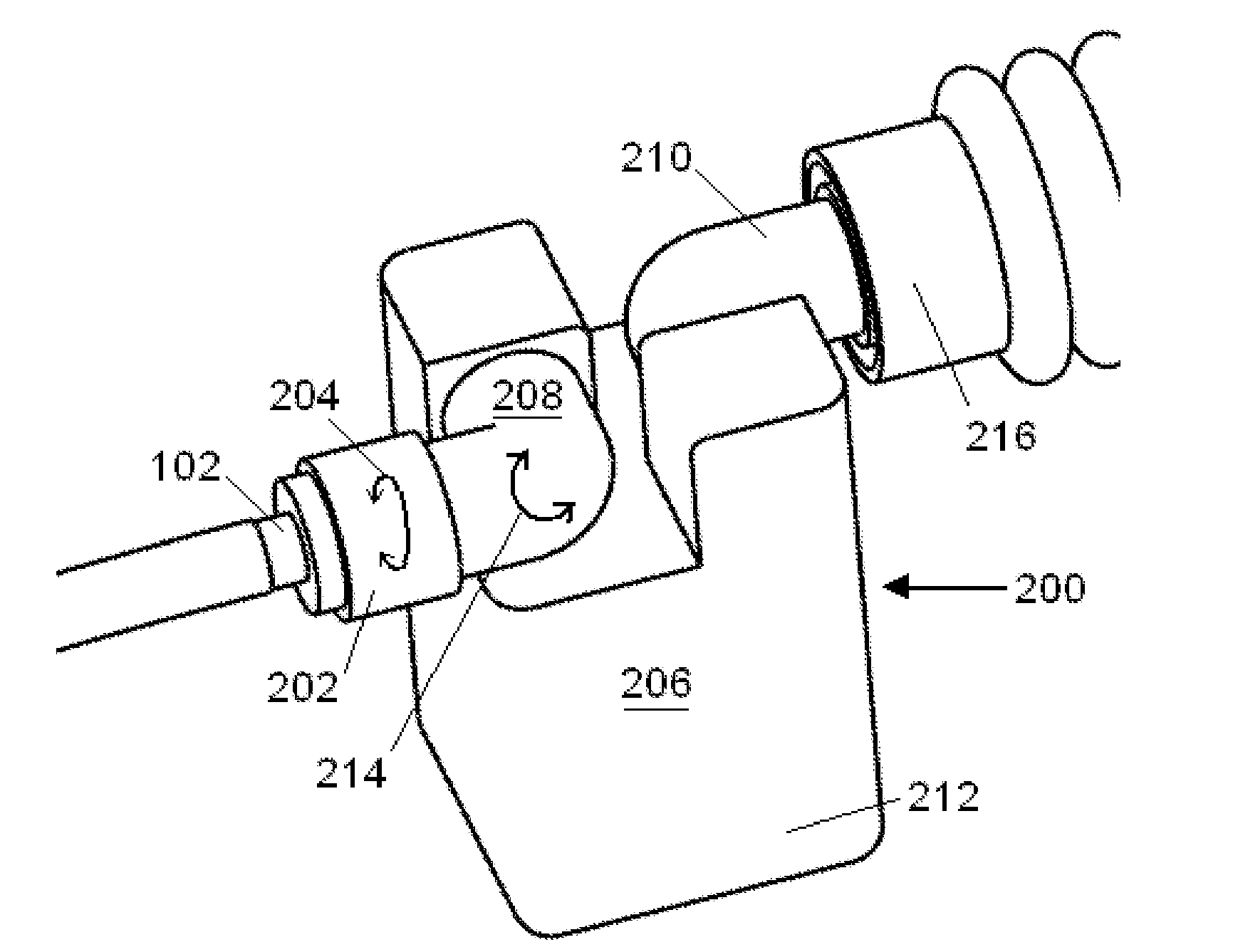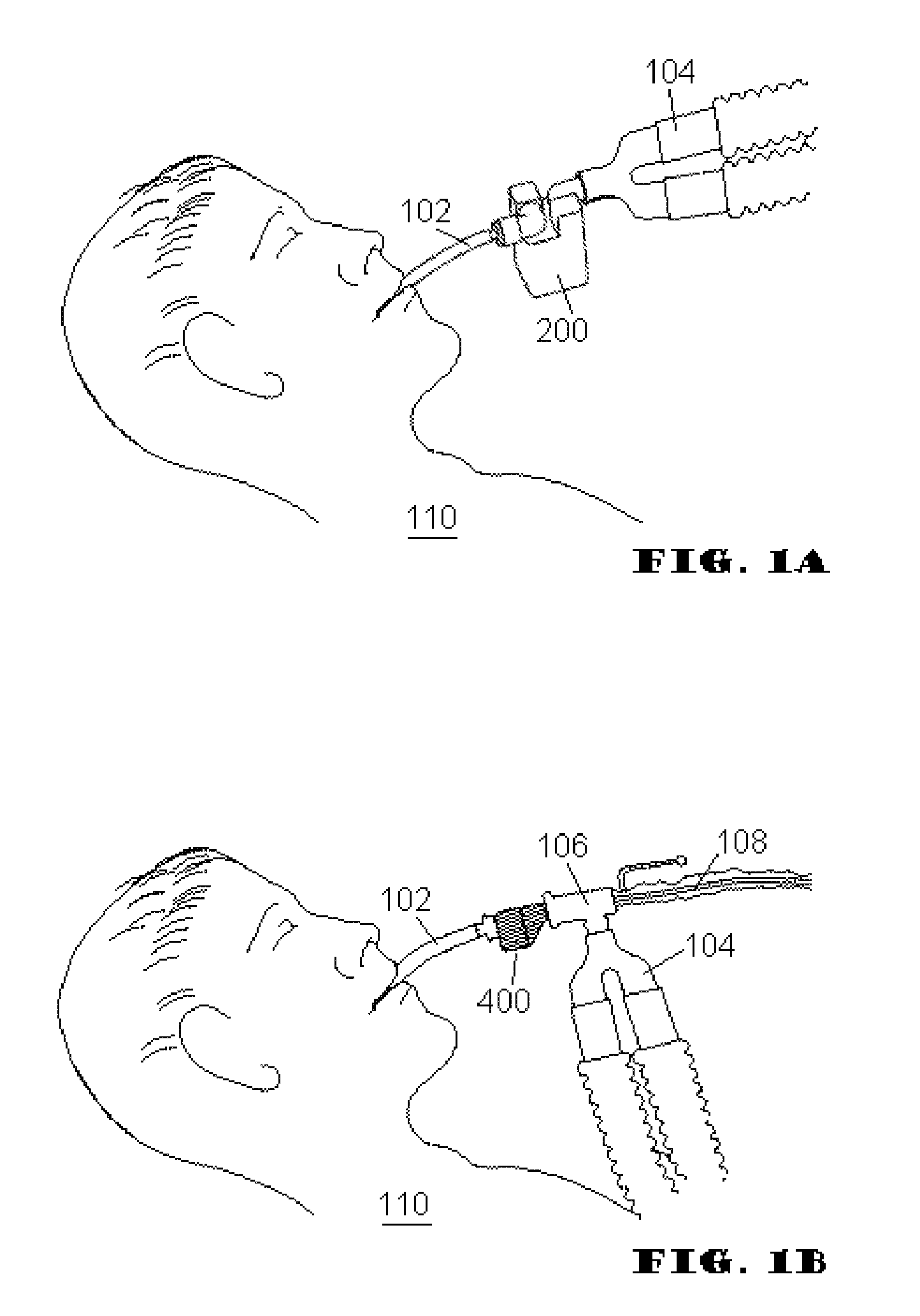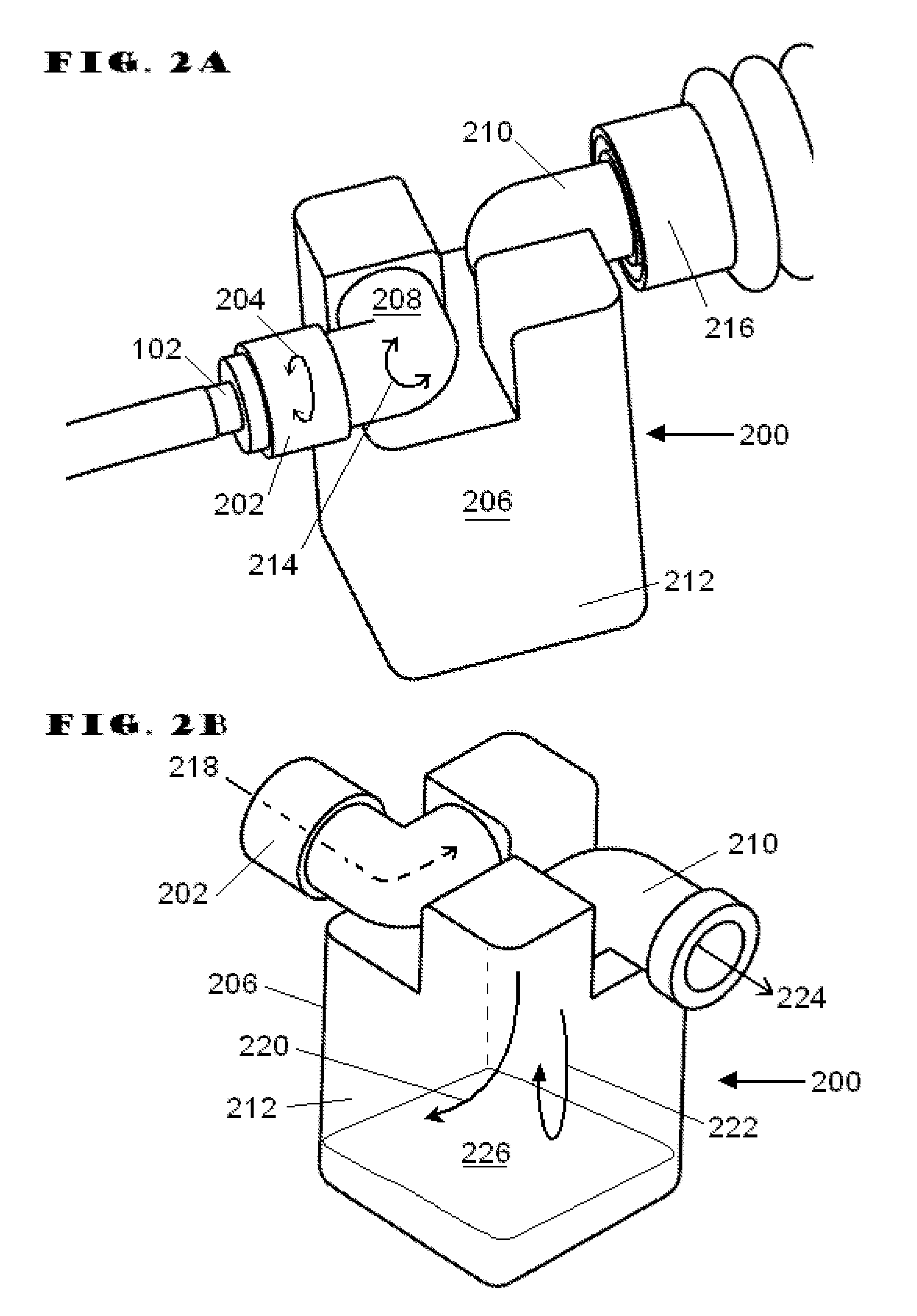Respiratory secretion retention device, system and method
a retention device and airway technology, applied in the field of artificial airways, can solve the problems of unfavorable fluid trapping devices, inconvenient and easy to egress through the lumen, and impose unnecessary and excessive dead spa
- Summary
- Abstract
- Description
- Claims
- Application Information
AI Technical Summary
Problems solved by technology
Method used
Image
Examples
Embodiment Construction
[0069]During the exhalation phase of respiration, fluid is expelled from the lower respiratory tract. Most of the fluid is in the form of gases, but liquid and particulate matter (respiratory secretions) are also expelled. The RSR acts to separate the “respiratory secretions” from the respiratory gasses. For purposes of this disclosure, “respiratory secretions” may include sputum, mucus, mucus plugs, and / or other all other nongaseous matter which may be conveyed out of the lower respiratory tract and the like.
[0070]Embodiments of the present invention address deficiencies of the art in respect to artificial airways and respiratory secretion management, and provide a novel and non-obvious apparatus, system, and method for managing respiratory secretions and fluids in artificial airways. For purposes of this disclosure “artificial airway” may include any portion of the breathing conduit that connects to a patient's airway. In an embodiment of the invention, a Respiratory Secretion Ret...
PUM
 Login to View More
Login to View More Abstract
Description
Claims
Application Information
 Login to View More
Login to View More - R&D
- Intellectual Property
- Life Sciences
- Materials
- Tech Scout
- Unparalleled Data Quality
- Higher Quality Content
- 60% Fewer Hallucinations
Browse by: Latest US Patents, China's latest patents, Technical Efficacy Thesaurus, Application Domain, Technology Topic, Popular Technical Reports.
© 2025 PatSnap. All rights reserved.Legal|Privacy policy|Modern Slavery Act Transparency Statement|Sitemap|About US| Contact US: help@patsnap.com



